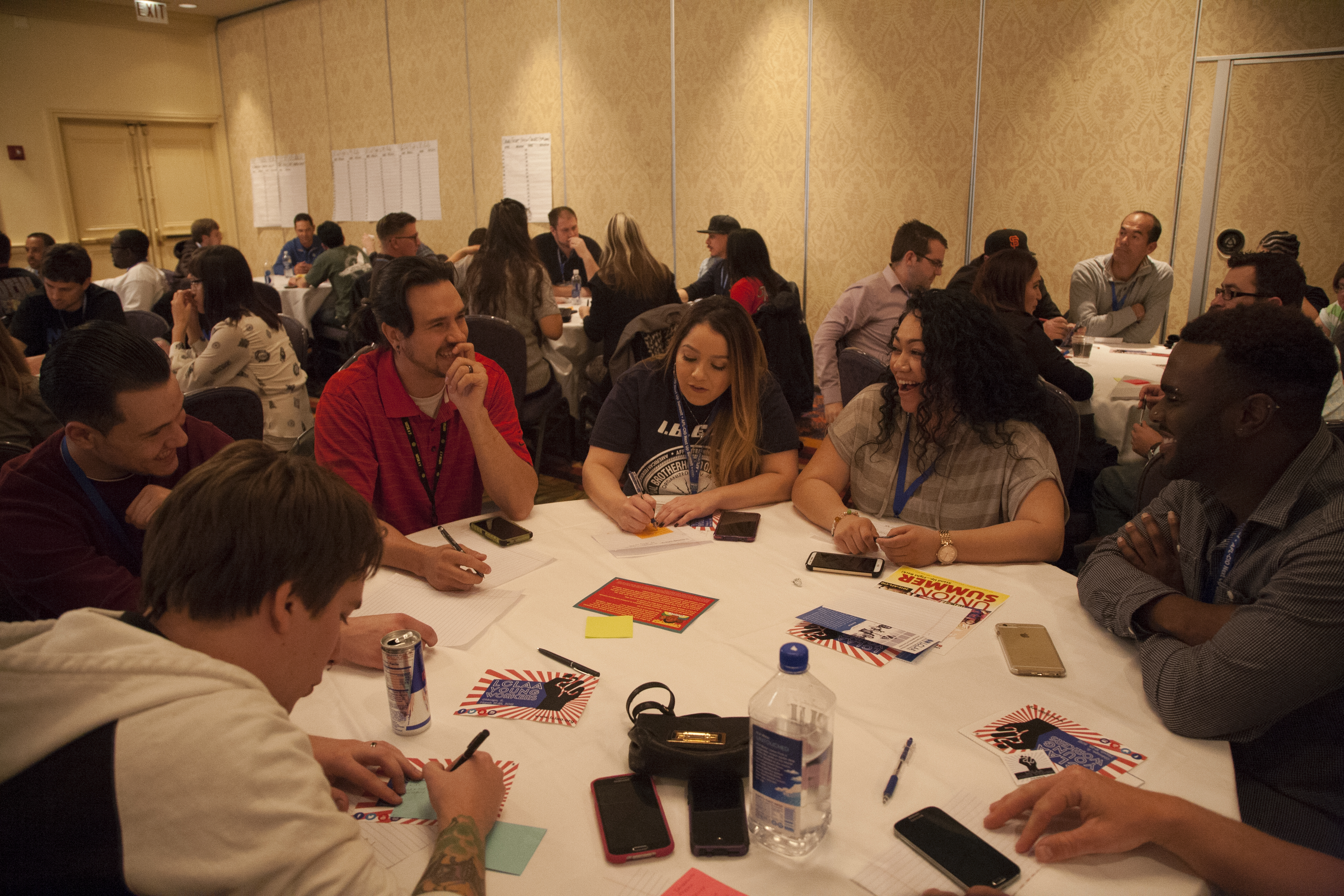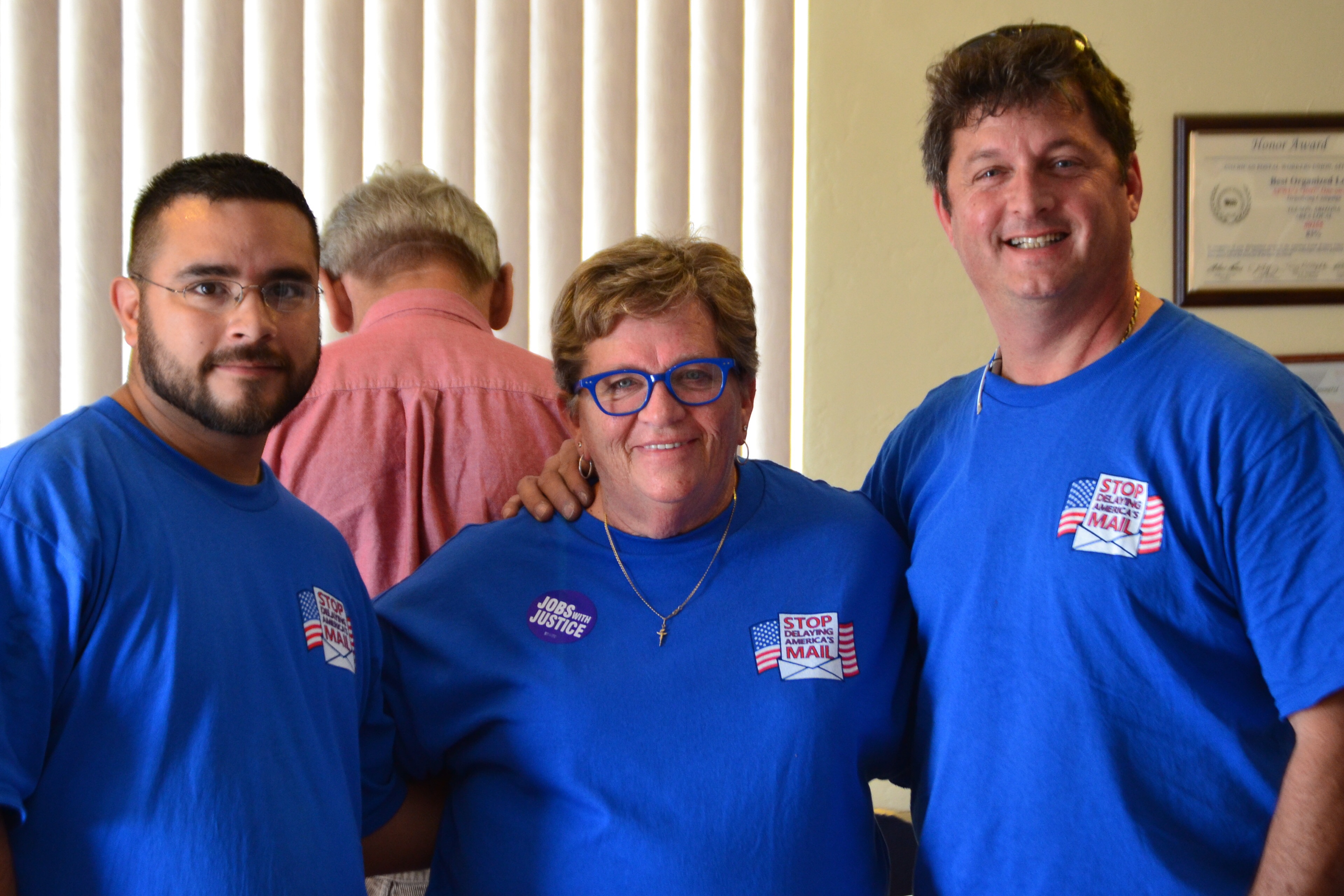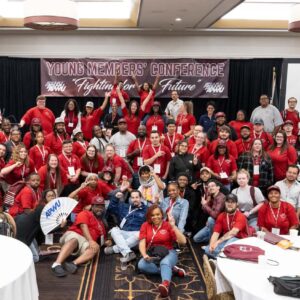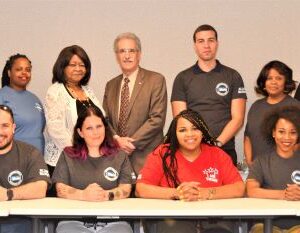September 1, 2015
The Power of Mentoring Our Young Members
(This article first appeared in the September-October 2015 issue of The American Postal Worker magazine.)

sponsored by AFL-CIO in March.
Were you aware that over 40 percent of our workforce is eligible for retirement? The baby boomers need younger leaders to carry on the work of our union and the labor movement. We don’t have much time to build new union activists, so it is essential that we mentor our young members.
A mentor is a trusted advisor, counselor or guide. Mentoring can take place between an older person and a younger person, a young person with another young person, a woman with a woman, a man with a man, etc.
At its best, mentoring is a two-way process where both parties learn new skills and see the union from a different perspective. The goal is to develop future APWU activists and leaders.
A formal mentoring program can allow for a fair way of deciding who to mentor, how the program will work, how often to meet, and how long the relationship will last. It will also help track the program’s success, and enable it to be ongoing to continually develop new activists. Mentoring can be one-on-one or it can take place in a group setting, which is known as team mentoring. Each local needs to figure out the approach that works best for them.
Group mentoring can make it possible for mentees to develop a network of contacts and to learn from multiple mentors and provide a quick way to bring more activists into the union family.
Young union members often do not view their current job as a career. There may be a high turnover, making it difficult to organize, especially when young members experience union give-backs and two- tier systems. Frequently the union culture doesn’t appeal to young members.
Statistics show that young people don’t dislike unions, but they have little contact with union activists. They are frequently unaware of union history, benefits, or even how unions function. Step in and provide a mentor program.
Young people are looking for new ways to resolve problems. A rising generation needs the tools to continue to build the union movement. Mentoring can give them the tools.

Connie Salder-Nelson and Mark Dragoslovich
Reaching Young People
Throughout history, young people have played a critical role in shaping the future, from civil rights to economic justice and policies. Now is the time to mentor your young people to fight for postal workers’ rights.
Young workers can inject new ideas and make sure the union stays relevant. Utilize their technology experience. Remember that young people don’t want to be lectured or called kids. They want respect. Many young workers are parents, primary caregivers, or helping their family.
Young people are not just strapped with the costs of education and student debt – they have been hit hard by the fact that both white-collar and blue-collar jobs have gone overseas. Some young people work two or three jobs to stay afloat. Our young people are forced to work in a lower-tier pay schedule with fewer benefits than their senior counterparts.
Teach the young workers how the union works. Welcome them at union meetings. Explain how the meeting is run and how motions are made to help them to feel comfortable. Have activities that will draw young workers by addressing issues of mutual concern..
What does the mentor get from the program?
- Shares the workload;
- Increases members’ awareness of union issues, and
- Enjoys a sense of satisfaction from building a larger social movement for future generations.
What does the mentee get from the program?
- Learns new information and develop new skills
- Strengthens his or her ability to think strategically;
- Becomes an active part of the union movement, and makes a difference in his or her workplace and community
To start a mentoring program:
- Set your goals and objectives. (Do you want one-on-one or group mentoring?)
- Set the length of time and location of meetings.
- Choose a program coordinator and mentors.
- Decide the orientation and outline of the program and the union skills and structure to be taught.
- Create a mentoring agreement.
- Select concrete tasks to assign mentees.
- Figure out how to best advertise for applicants.
- Survey the mentees before and after and build a mentor/mentee database to show program success.
- Decide how the local or state will support the program, what you can or cannot afford, and work within your budget.
Many local and state presidents feel their plates are full, but you will never get relief if you don’t take the time to mentor your members.
Area Local, and Courtney Jenkins, Baltimore Francis
Stu Fibey Area Local, at a voting rights rally.
Look at your activists and analyze whether they reflects the diversity of your membership. Seek young workers, women, veterans and members of every race and ethnic group. Find leaders in each of those groups on the workroom floor who can help you organize. Once you have chosen your first group of mentees and mentors, plan your program.
There are many work experiences and assignments mentors can share. Explain the union structure, meetings, parliamentary procedure, conventions, voting, the constitution, the contract, grievances, organizing, legislative activities, community activities, goals for the local, and leadership roles.
Assign mentees with tasks such as: making motions at a union meeting, organizing a picket, or union event, getting members to show up for a union meeting, helping with the local’s website, writing articles for the local newsletter, connecting with the media, helping organize a community coalition, public speaking, getting members to stand up together against a management action, brainstorming on ways to make the local stronger, working on election campaigns, registering to vote, developing flyers and pamphlets, researching membership and workplace needs, working on childcare and family issues, helping organize non-members, working on a local union committee and attending the central labor council as a committee member.
Try mentoring your membership so they can become active members. Let your members help you. We have too few people trying to do too much.



